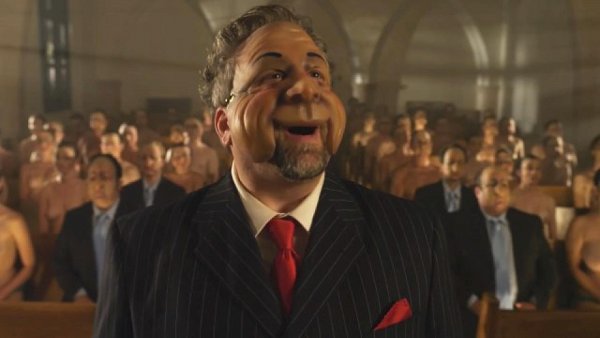

By Kim Voynar Voynar@moviecitynews.com
SIFF 2012 Review: John Dies at the End
John Dies at the End, the much-hyped film adaption of the book of the same title by David Wong (a pseudonym for Cracked editor Jason Pargin), isn’t a great film … but it is a fun film for what it is. I mean, look. I saw some of the reviews out of Sundance and SXSW, wherein folks were bitching about the low-budget SFX in this film, so I went into this expecting it to be really, really schlocky. And it’s not. Yes, it’s true that there are times when its obvious director Don Coscarelli (Phantasm) is stretching the limits of a low budget to their max, and where you can see how much cooler the effects might have been given another million or ten here and there. So what?
Let’s appreciate what we have here: How ballsy was it for an independent director to take on shooting a project that many felt was completely unfilmable, on a low budget? It doesn’t hurt that Coscarelli has Paul Giammati anchoring the film as the skeptical reporter to whom Dave (newcomer Chase Williamson) tells a wild tale involving a street drug called “Soy Sauce” that shows the user a hidden world of monsters and doorways and the dead and time travel and invading aliens that incubate and hatch in a particularly gross (but cool) way. Also, there are naked people wearing disturbing, clownish masks, and if weird masks freak you out (hey, they do me) they might end up freaking you out in your dreams. Shudder.
John Dies is burdened by its spectacular, tight, clever opening sequence; the rest of it never quite lives up to the promise that opener offers. Because once we get past that bit and Coscarelli has our attention, just when we’re thinking, “hmm, okay, this could be interesting,” we get the rest of it, which is just – have you ever sat and listened to someone really stoned explaining a trippy or scary dream they had? It’s kind of like that, only it’s a really long dream and parts of it seem completely disconnected from the rest. But then there are quite a few times when, out of the blue, the script does something intelligent or witty or unexpected, and this happens with enough frequency that as the story unfolds we mostly stay with it, waiting for the moment when everything will become clear. It never quite does.
And it’s not always coherent, the second half is overly bloated by exposition, and it doesn’t always make sense – but even at its worst, I was still having fun watching it. Much like the acid trip the film evokes, you have to just kind of let go of any expectation that things have to be a particular way and allow the parts to flow together as they will. If you can let go your need for a plot to make logical sense, and the inherent belief that all SFX must look completely kick-ass like someone had $100 million to blow on blowing your mind, John Dies at the End is a clever, interesting, frequently funny film. And I completely respect Coscarelli, who seems to be a truly stand-up sort of guy, for having the audacity to tackle this material with a low-budget, and the tenacity to see it through and pull it off.















